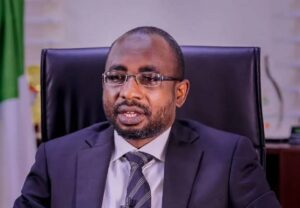The Managing Director of the Niger Delta Development Commission (NDDC), Dr. Samuel Ogbuku, has pointed to years of leadership instability as the main reason for the Commission’s high number of uncompleted projects. He made the statement during an interview on Channels Television’s Sunrise Daily programme, where he reflected on the Commission’s challenges over the past two and a half decades.
According to Ogbuku, the NDDC has been hindered by frequent changes in its top leadership, a trend that has severely disrupted its long-term planning and execution. He revealed that in the Commission’s 25-year history, it has seen no fewer than 16 Managing Directors and Chief Executive Officers. This, he said, created a cycle of inconsistency that stalled projects, undermined accountability, and eroded public trust.
“When you have 16 CEOs in 25 years, it means no Managing Director stays long enough to complete a vision,” Ogbuku explained. “Each time a new leader comes in, priorities change, contractors lose direction, and projects are either paused, duplicated, or abandoned entirely.”
He noted that such frequent transitions left the Commission with a backlog of unfinished infrastructure across the Niger Delta. Roads, schools, health centres, and water projects meant to improve lives remain incomplete or poorly maintained due to constant policy shifts and administrative resets.
A statement issued on Thursday in Port Harcourt by the Commission’s Director of Corporate Affairs, Seledi Thompson-Wakama, also echoed Ogbuku’s remarks and confirmed that the lack of leadership continuity has been a longstanding concern within the Commission.
Ogbuku emphasized that the current NDDC leadership is committed to reversing this trend. He said the new management has started auditing uncompleted projects across the region with the aim of prioritizing those that directly impact the lives of ordinary people. He stressed that the Commission is focused on restoring credibility, improving execution, and ensuring that no new project is started without a clear path to completion.
He also stated that part of the ongoing reform includes adopting a more strategic and region-wide development plan, rather than responding to political pressures or isolated community demands. The goal, according to him, is to transform the NDDC from a reactive agency into a forward-looking institution that delivers results.
Ogbuku called for greater patience from stakeholders, noting that rebuilding trust and cleaning up years of poor planning will take time. However, he said the current administration is determined to create a culture of stability and professionalism that will outlast political cycles.
He further urged all those involved in the development of the Niger Delta to work together to end the culture of short-termism and abandonment. “If we want real development, we must start thinking beyond tenures and focus on continuity, quality, and completion,” he concluded.
As the NDDC charts a new course under Ogbuku’s leadership, hopes remain high that the agency can finally overcome its troubled legacy and fulfill its mandate to transform the Niger Delta into a hub of opportunity, infrastructure, and inclusive growth.







